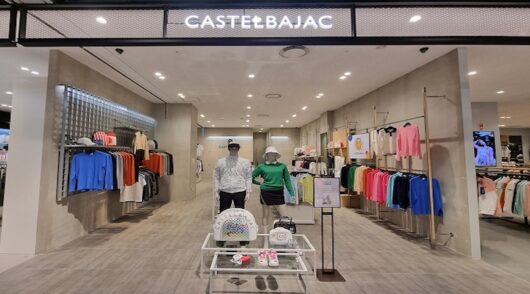Fashion companies around the globe have been urged to avoid ‘greenwashing’ as they “fall over themselves” to make sustainability claims.
While retailers and labels like Sainsbury’s and Fat Face have publicly committed to cutting emissions across their operations by 2040 and 2025, respectively, GlobalData apparel correspondent Michelle Russell warns they risk accusations of ‘greenwashing’ when the real issue lies in the supply chain.
Sainsbury’s and Fat face have joined a raft of global fashion firms signing up to initiatives such as the UN Fashion Charter and the Fashion Pact, or chartering their own course to hit sustainability goals.
Russell argues that while these commitments mark “a step in the right direction,” many of the companies who have signed up have been accused of greenwashing by spending more on marketing themselves as environmentally friendly than on reducing their environmental impact.
“The bulk of a company’s greenhouse gas emissions, for example, are generated in its supply chain, so brands need to be taking their supplier networks into account when setting out their pledges if they are to even come close to mitigating emissions.”
“It would be encouraging if more companies acted like Levi Strauss, which set targets in 2018 for reducing carbon emissions across its owned-and-operated facilities and global supply chain by 2025. Unfortunately, there many companies that aren’t in complete control of their whole business operations and visibility across the value chain is non-existent, or limited, at best,” says Russell.
She adds that there is also the challenge of investment, which she believes is a huge factor holding brands back.
According to the Carbon Trust, as much as 80 per cent of a company’s total carbon impact lies outside its direct operational control making it hard to make verifiable claims about environmental progress.
“Gucci CEO Marco Bizzarri recently issued a cross-industry call to other CEOs to implement a “360-degree climate strategy,” taking “full responsibility and accountability” for the total greenhouse emissions generated by their business activities.
“As such, he launched the ‘CEO Carbon Neutral Challenge,’ which covers both a company’s operations and its entire supply chain,” says Russell.
Another leader in sustainability is Maya Rommwatt, a fashion campaigner for environmental group Stand Earth. She argues that commitments such as the Fashion Charter are encouraging but don’t go far enough.
“To get really excited, we’d like to see signatories pledge to make deeper and faster emissions cuts aligned with a pathway to 1.5 degrees, which is what current science tells us we must be aiming for if we want to reduce the worst impacts of climate change. This would mean committing to reducing absolute climate pollution in their global supply chains by at least 40 per cent by 2025, setting specific renewable energy goals for their factories and mills, and pledging to avoid false solutions like reaching ‘carbon neutrality’ through mass carbon offsets.”






